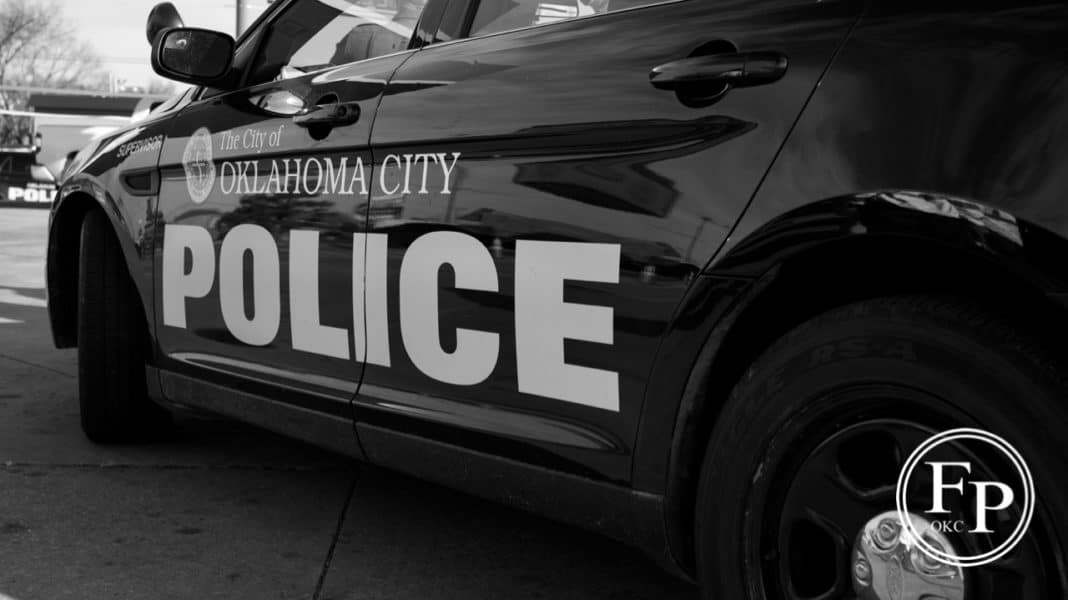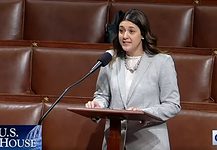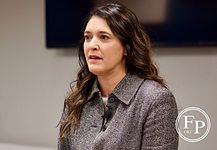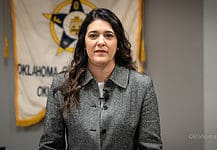Last Updated on January 5, 2024, 12:57 AM | Published: February 28, 2022
This opinion column is written by Paula Sophia Schonauer, a licensed clinical social worker who was once an Oklahoma City Police Officer. This column is in anticipation of the discussion in the City Council of Oklahoma City Tuesday, March 1 to receive a 70+ page report with recommendations for police reform in the City.
Our preview of the meeting will give you information and documents that will be a part of the discussion Tuesday.
Police officers in Oklahoma City and in many other agencies do not want people looking over their shoulders while they work because they do not really want transparency.
Mental health professionals bring a perspective that can be critical of police officers, which does not fall in line with the code of silence officers explicitly and implicitly embrace.
I used a tablet with clients during much of the COVID-19 era. Often, people in crisis need more personal contact, more presence from a mental health professional, more empathy as well. Who better to provide that empathy than someone who knows how to provide presence and reassurance during a crisis?
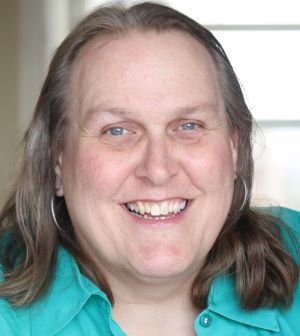
I contributed to the Community Policing Working Group but found the experience frustrating, not trusted by progressive members of the group because of my law enforcement background and not listened to by 21CP and OCPD staff because I have a history of calling out police officers who treated me badly (foremost among them Chief Gourley himself). To them, my criticism sounds like I have an axe to grind.
Well, honestly, I do. I have long been appalled by the behavior many officers exhibit toward citizens, especially minorities and 2SLGBTQ people.
Many officers thought of me as mentally ill during my tenure at OCPD, and by that fact, I have a front row seat on their attitudes toward people they regard as mentally compromised.
Many of the meetings I attended were very structured, aimed at educating the members about police operations and procedures and their own ideas about what comprises community policing. OCPD, Oklahoma City representatives, and 21CP did not spend as much time listening to us about our thoughts regarding community policing, certainly not my thoughts.
My experience here is very similar to the experience many citizens report anecdotally when encountering police officers: the lack of officers who listen with real concern, telling people that their own narratives and outlooks do not matter as much as the narrative and outlooks of responding officers.
And I must point out: I responded to the OCPD survey three times. I received text and email prompts on different occasions and responded, limiting my response to three. I had more opportunities than that. This fact alone makes me question the validity of the survey, though I must admit I do not know if the data examiners had a method to screen out multiple responses from the same person. Admitting that leaves open the possibility that some duplicate responses could have been discarded while others were not. I did not get to see the research model.
However, many citizens in OKC have seen information either suppressed or downplayed by OCPD in the past decades, most notably with the Jeffery Todd Pierce case and the subsequent Joyce Gilchrist scandal, a situation indicative of systemic corruption being laid upon a single person who was either unqualified for her job or who had been compromised by a culture that engages in confirmation bias, penalizing anyone who dares question outcomes that contradict the prevailing attitudes of many officers, investigators, and prosecutors.
If one listens to the rhetoric of the FOP, one will get a good idea about the prevailing attitudes of most rank and file OCPD officers.
Not all officers agree with the FOP’s outlook, but they are often ignored, sidelined, or defamed.
Chief Gourley stated numerous times in Community Policing Working Group meetings, “Well, not all officers have the capacity or interest to be CIT certified” when pushing back against our desire to see ALL officers receive the full 40 hours of CIT training.
Therein, is an admission that he does not want to make Crisis Intervention a priority among officers, who respond to mental health related calls more often than homicide calls.
I believe police officers should be recruited with an understanding they are public servants first, that all their endeavors should serve the public interest and not their own assumptions about what the public interest is.
Mental Health Professionals (MHP’s) should be educated in Forensic Social Work, going into collaborative contact with police officials having an appreciation of the systemic inequities found in the criminal justice system.
MHP’s should also be aware of the insular nature of police departments, the culture of conformity and silence, and the often contemptuous regard too many officers have toward people living with mental health diagnoses. They should have systems of support to help them process the pressure to conform to the police narratives and to deal with the trauma of witnessing something disturbing and the subsequent isolation or removal from service if their interpretation of events does not correspond to the official police narrative (i.e. the shooting of Stavian Rodriguez).
I tried to address these concerns while working with the Community Policing Working Group. I hope some good comes from the process, but a reliance on tablet evaluations gives me some trepidation. Tablet cameras are myopic in function, disallowing the full context of engagement, and there is the problem of malfunction, communication difficulties, and the opportunity for censure if a situation should escalate to violence.
By no means should anyone feel the job has been done after Tuesday March 1st.
I am not even sure we have had a real beginning.
Stay vigilant. /s/ Paula Sophia
Guest Columnist Paula Sophia is a licensed clinical social worker in Oklahoma City and a former Oklahoma City Police Officer.
